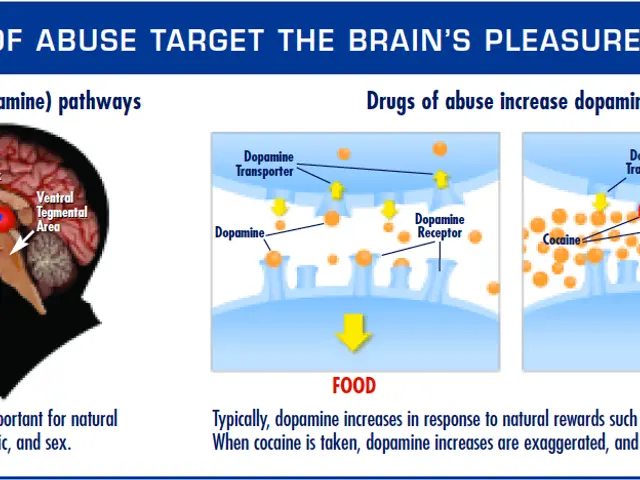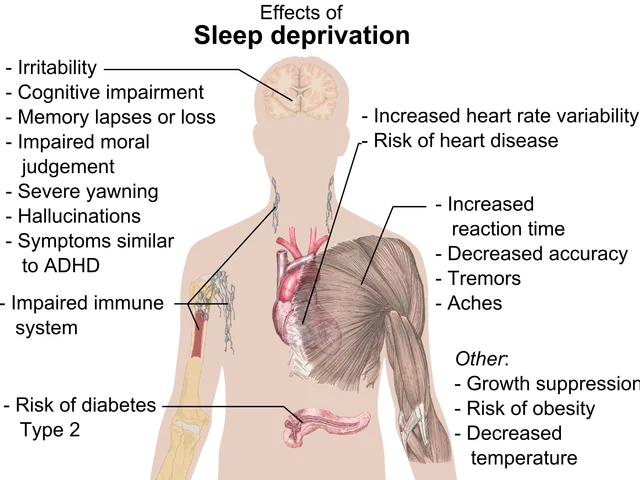Decreased MTHFR Functionality Connected to Bipolar Disorder: An Exploration
The intriguing links between our genes and mental health never fail to excite scientists and healthcare professionals alike, with the connection between decreased MTHFR activity and bipolar disorder being a hot topic. This intricate dance of genetic factors and mental health issues provides valuable insights into the mechanics of mood disorders and potential avenues for treatment.
To grasp the relationship between reduced MTHFR activity and bipolar disorder, it's essential to first comprehend what MTHFR is and its role in our bodies. MTHFR, short for methylenetetrahydrofolate reductase, is an enzyme that plays a significant role in the methylation process, a vital biochemical pathway affecting numerous bodily functions.
MTHFR is responsible for converting folate into its active form, 5-methyltetrahydrofolate. This transformation is crucial for the methylation cycle, involved in DNA synthesis, neurotransmitter production, and detoxification, impacting our overall health when function is impaired.
When MTHFR activity lessens, often due to genetic mutations, it can trigger a cascade of health problems, including cardiovascular issues, neurological disorders, and mental health concerns.
Bipolar disorder, characterized by extreme mood swings between manic highs and depressive lows, is a complex mental health condition. Proper diagnosis can prove challenging, as symptoms vary among individuals and may overlap with other mental health disorders. At present, there isn't a definitive blood test for bipolar disorder, making diagnosis rely on a thorough evaluation of symptoms, medical history, and sometimes genetic factors.
Genetic factors heavily influence the development of bipolar disorder. Research indicates that this disorder often runs in families, pointing to a strong genetic component. However, it's important to remember that having a genetic predisposition doesn't guarantee the development of the disorder. Environmental factors and life experiences also play significant roles in its manifestation.
The tie between reduced MTHFR activity and bipolar disorder lies in the disruption of the methylation process. Methylation is essential for neurotransmitter production and regulation, key factors in mood regulation and mental health. Research suggests a potential link between MTHFR gene mutations and an increased risk of bipolar disorder, with some studies finding a higher prevalence of certain MTHFR gene variants in individuals with bipolar disorder compared to the general population.
The mechanisms and pathways through which reduced MTHFR activity may contribute to bipolar disorder are complex. One hypothesis is that impaired methylation leads to neurotransmitter imbalances, particularly affecting serotonin, dopamine, and norepinephrine levels, disrupting mood regulation. Additionally, reduced MTHFR activity may lead to elevated homocysteine levels, which could potentially contribute to the development or exacerbation of bipolar symptoms.
Managing reduced MTHFR activity and bipolar disorder typically involves a multi-faceted approach, often incorporating lifestyle changes, dietary modifications, and targeted supplementation. Key aspects of managing reduced MTHFR activity include addressing potential nutrient deficiencies through supplementation with methylated forms of B vitamins and maintaining a diet rich in folate-containing foods. For individuals with bipolar disorder, treatment may necessitate tailoring medication choices and dosages based on an individual's MTHFR status.
Preventing and managing MTHFR-related bipolar disorder may involve genetic testing and counseling to identify those at higher risk. Understanding genetic predisposition can inform preventive strategies and guide early intervention efforts. Early intervention and management strategies are crucial for individuals with reduced MTHFR activity who may be at risk for bipolar disorder, often involving regular mood symptom monitoring, stress management techniques, and maintaining a healthy lifestyle.
Supportive therapies, self-care practices, and personalized treatment approaches based on MTHFR status and genetic insights can enhance the overall management of reduced MTHFR activity and bipolar disorder. Some individuals have explored alternative approaches like microdosing psychedelics for bipolar disorder, though caution and professional guidance are recommended when considering such alternatives.
Recognizing the importance of MTHFR activity in mental health, particularly in conditions like bipolar disorder, underscores the need for a comprehensive approach to mental health care. As our understanding of the genetic underpinnings of mental health conditions grows, so does the potential for personalized treatment approaches. The exploration of the MTHFR-bipolar connection represents one example of how genetic insights can guide mental health care, potentially leading to more effective, individualized treatment strategies in the future.
- In the field of psychology and neuroscience, the connection between reduced MTHFR activity and bipolar disorder is a significant area of interest.
- MTHFR, or methylenetetrahydrofolate reductase, an enzyme involved in the methylation process, is essential for our mental health.
- Research suggests a potential link between MTHFR gene mutations and an increased risk of bipolar disorder, particularly in producing neurotransmitter imbalances.
- Managing reduced MTHFR activity and bipolar disorder often requires a combination of lifestyle changes, dietary modifications, supplementation, personalized medication choices, and stress management techniques.
- Early identification and intervention, focusing on mood symptom monitoring, stress management, and a healthy lifestyle, can be crucial for individuals with reduced MTHFR activity who may be at risk of developing bipolar disorder.
- The exploration of the MTHFR-bipolar connection offers insights into personalized treatment approaches for mental health conditions, potentially leading to more effective and individualized treatment strategies in the future.







